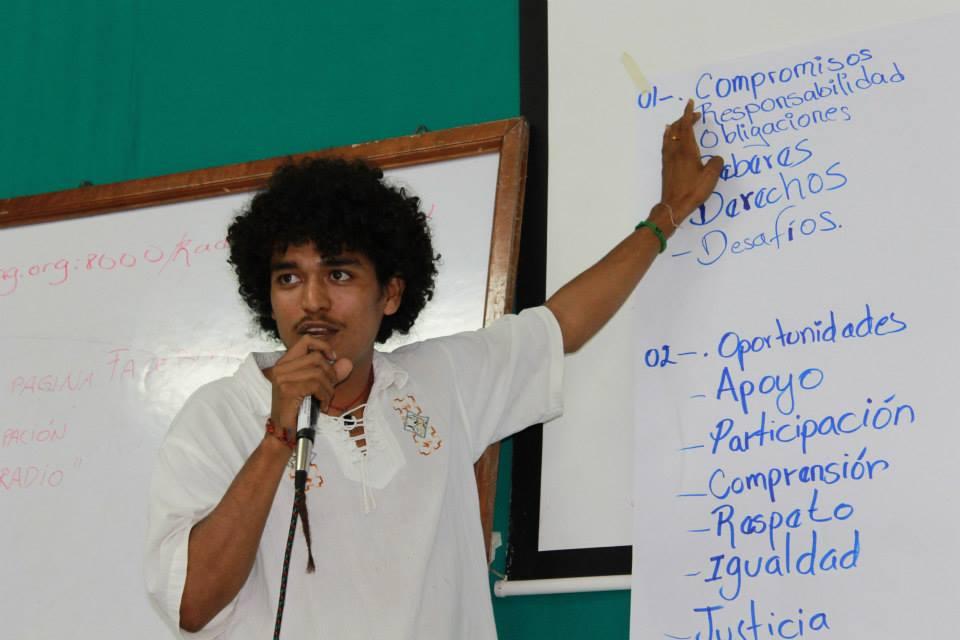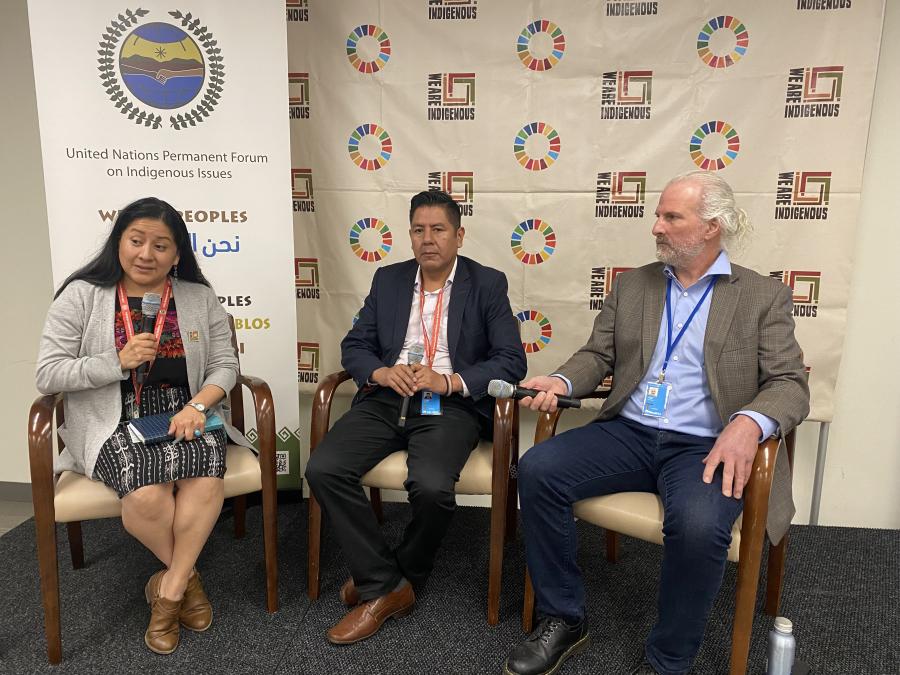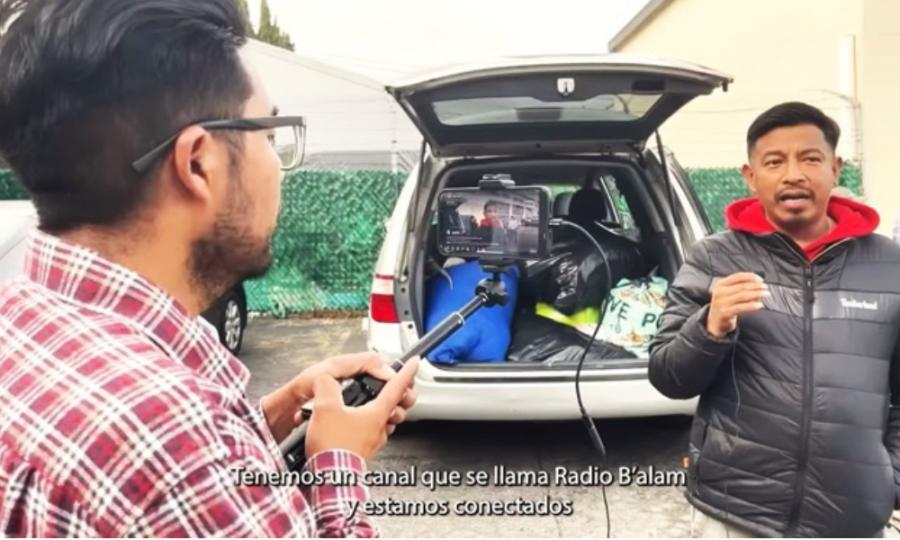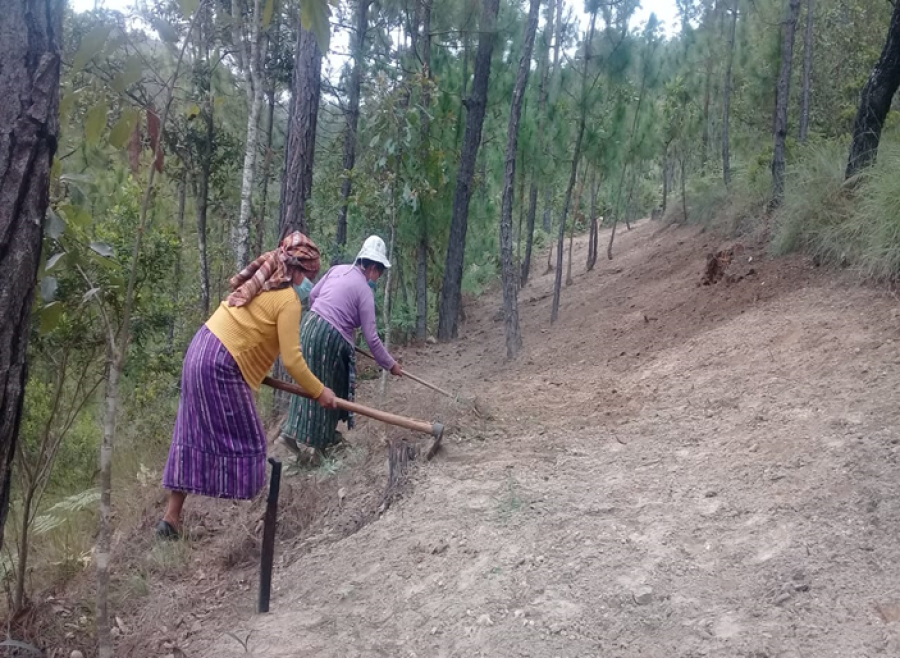
Cultural Survival's Community Radio Project team is in the final planning phases of what will be our one of our largest community radio events to date. This upcoming Tuesday, November 26, in Santiago Atitlán, Sololá, Guatemala, we are holding a 3-day conference for Indigenous youth from Belize, Guatemala and El Salvador, in coordination with three other Indigenous rights organizations, ADECCAP, Tumul K'in Centre of Learning/ Ak'Kutan Radio and Africa 70. The central theme of the conference is how to use community radio as a tool for improving participation and integration for Central American Indigenous youth, with a focus on the eradication of social exclusion through the reclamation of Indigenous values and languages.
[[{"fid":"62058","view_mode":"media_original","fields":{"format":"media_original","field_file_image_alt_text[und][0][value]":"","field_file_image_title_text[und][0][value]":"","taxonomy_vocabulary_8[und][]":"2676","taxonomy_vocabulary_14[und][]":"2878","field_caption[und][0][value]":"","field_copyright[und][0][value]":"","taxonomy_vocabulary_16[und]":"_none","field_media_page[und]":"1","field_folder[und]":"3046","field_tags[und]":""},"type":"media","attributes":{}}]]
Lesvia Garcia, a youth volunteer at Radio Sembrador in San Pedro La Laguna, speaking at the First Youth Conference organized by ADECCAP and Africa 70 in El Salvador.
Our agenda is primarily participatory, with an emphasis on doing rather than watching, and learning from one another rather than learning from above. The youth will be practicing their interviewing skills and taking part in investigative journalism in the community of Santiago Atitlan, where the event is being held. They will be investigating topics that are important to their communities, and that they will have chosen themselves based on group discussion. They will be interviewing community members, radio experts, and leaders of organizations to create programs, which they will present during a youth press conference that will be held on the final morning of the encounter.
These youth will be learning about the history of armed conflict in their countries and relating these events to the lived realities of their communities today. We believe that it is crucial that these youth are knowledgeable about the history of their communities in order to make connections with the current discrimination and exclusion that the communities experience. By understanding their pasts, they can begin to have a more complex understanding of the present.
The message that we are aiming to share with these youth through this conference is that by participating in the radio, they can help to improve the integration not only within their communities, but also with Indigenous communities from other countries. By learning about the shared histories of their Indigenous communities from Belize, Guatemala and El Salvador, these youth will have a more concrete understanding that they are not alone in their struggle, and that there is a greater historical, cultural and political context to their individual experiences. Finally, by using community radio as a tool, they will be able to share this knowledge with youth from their communities and neighboring communities, multiplying awareness.



